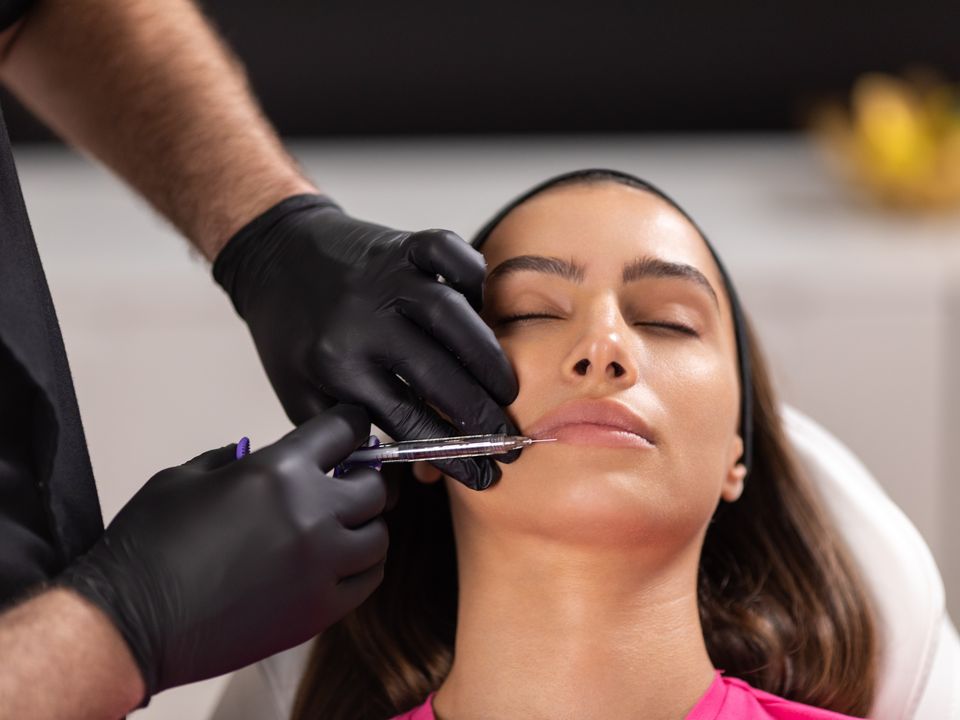Cosmetic botch-jobs on the rise as calls made to tighten up Irish regulations
Facial implant procedures such as dermal fillers and threads can be carried out without prescription and by untrained professionals
Picture posed — © Getty Images
The government is facing increasing pressure to tighten regulation around non-surgical cosmetic procedures, amidst reports that the number of people suffering botched treatments is on the rise.
At present facial implant procedures such as dermal fillers and threads can be carried out without prescription and by untrained professionals.
However, concern is growing that patients across Ireland, particularly young females, are increasingly seeking medical help following complications arising from poor treatment.
Irish cosmetic clinics chain Sisu - where procedures are strictly only administered by highly-trained medical professionals - has been receiving up to two inquiries every week from people looking to have problems rectified following botched treatment by non-medics.
James Cotter, who's medical director of the aesthetics company along with being a medical doctor, said: "There is undoubtedly a need for regulation in the industry when it comes to the administration of dermal fillers and the performing of threads. At the moment there is none. Not just very little, but actually none.
Read more
"In Ireland, one has to be a doctor or a dentist to prescribe and administer Botox. But around fillers and threads there is no such requirement. It's nonsensical when one considers that the potential to do the patient serious and long-lasting harm is far greater with dermal fillers and threads than it is with Botox."
Dr. Cotter added: "Every treatment carries some form of risk, be it Botox, dermal fillers or threads. Most complications occurring from medically performed treatments can be rectified relatively easily, as they tend to be minor because the initial treatment was properly and competently carried out in the first place.
"The incidence rate of complications and serious complications with long-lasting consequences for the patient is much higher in treatments performed by non-medics."
Dublin-based aesthetics and threads physician Dr. Mukesh Lalloo said young women fit the general profile of patients suffering post-treatment complications from non-medical practitioners who have been turning to him.
And he warned that in worst-case scenarios, procedures administered by non-medical practitioners can lead to blindness.
He said: "There is no central regulating authority for aesthetics and there is no real will on behalf of the government or health service to regulate the industry. Take dermal fillers, for example. One would think that the scary prospect of sticking a needle into someone else's face when you have no idea what you are actually doing would be enough to prevent people from injecting others. But it simply does not.
"Likewise, we are even seeing threads inserted by individuals who have absolutely no knowledge of what they are doing. Nor do they care.
"Knowledge of the anatomy is absolutely crucial in order to avoid physical injury to delicate facial structures, muscle nerves and blood vessels.
"There have even been reports of blindness associated with fillers from injecting into an artery in the face and pushing filler inside the blood vessels that lead to the eye."
He added: "Where you find one complication you often find several, unfortunately, and 99.9pc of the time it's complications from non-medical practitioners that we see. A competent medical doctor will spot the complication early and act to correct it very quickly. The real danger is that non-qualified individuals providing fillers and threads don't even recognise the complication, never mind correct it."
Colin Riordan, a well-known Blackrock Clinic-based plastic and reconstructive surgeon, echoed the calls for tighter regulation, insisting such procedures should only be carried out by trained healthcare professionals.
He said: "Serious complications are rare, but when they occur they can be devastating for the patient and could involve skin neurosis or loss of tissue, nerve impairment and very rarely, visual disturbance.
"It is important that this area of medicine is regulated, although legislating in this area is not easy as there are many specialities, not just plastic surgeons, who feel they should be permitted to perform these types of procedures. It is, of course, important that these procedures are only carried out by adequately trained and experienced doctors and nurses."
In a statement the Department of Health noted that the "manufacture and placing on the market of dermal fillers" is regulated under the EU Medical Devices Regulation [MDR].
However, the statement confirmed that the MDR legislation "does not explicitly regulate aspects relating to the use in practice or administration of the product".
The statement added: "The Department of Health advises any member of the public considering treatments such as these to ensure they are being performed and administered by an appropriately trained and qualified professional, and that the products used comply with the requirements of the relevant legislation."










































